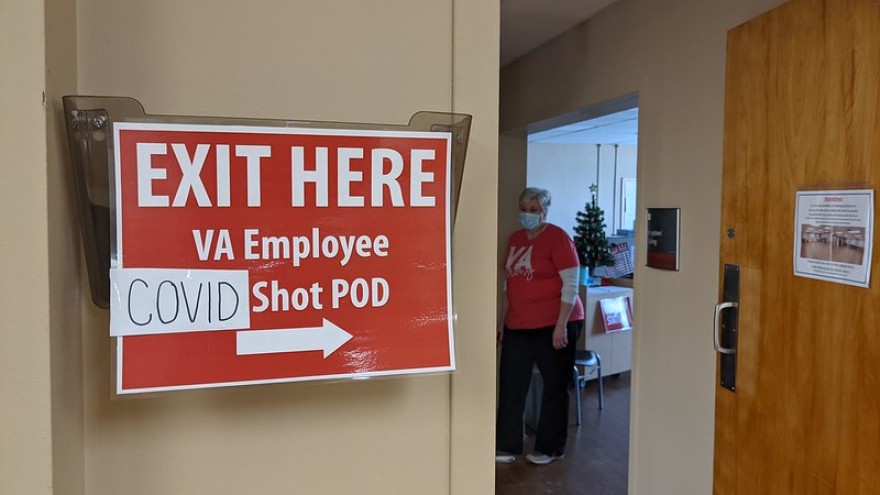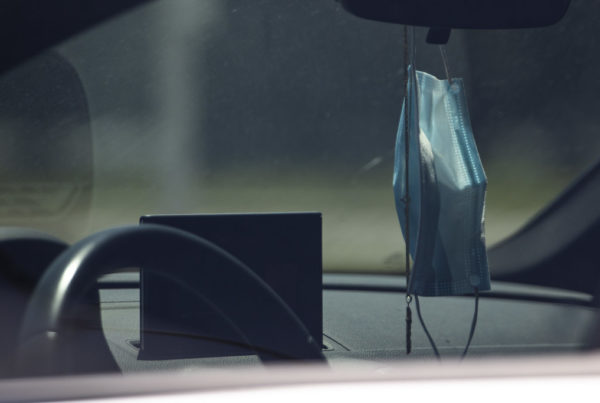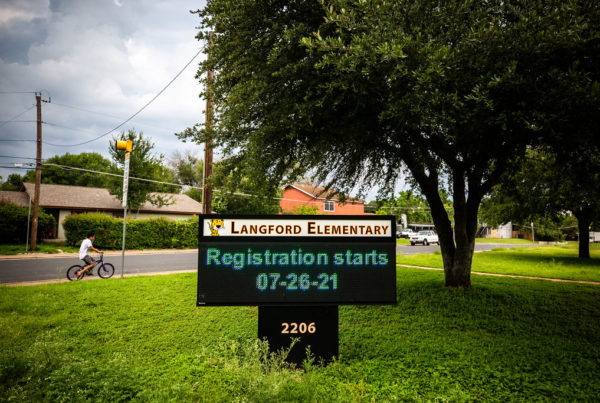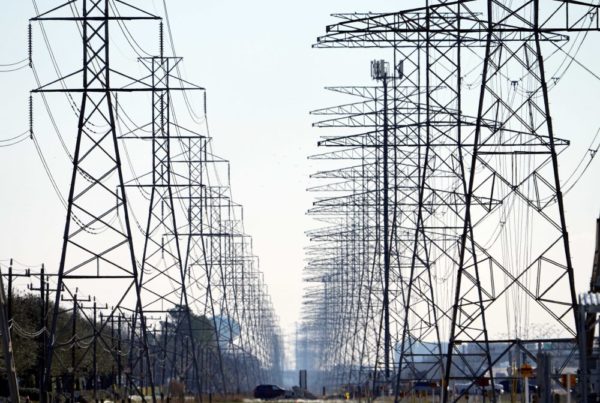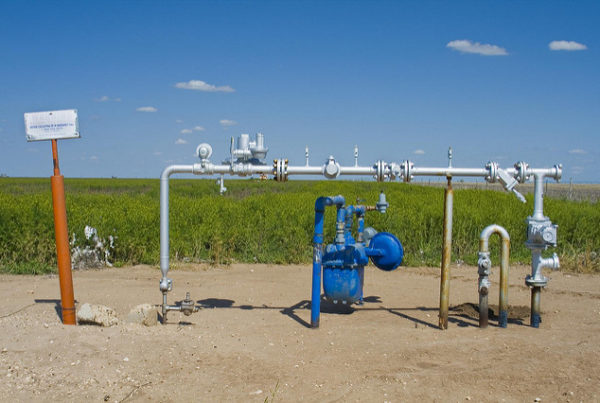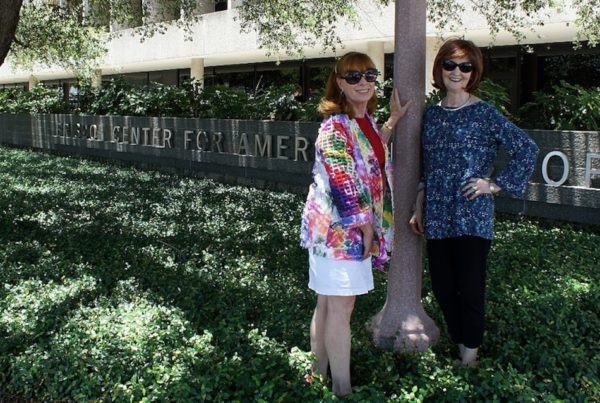From Texas Public Radio:
Every person who walks through the doors of San Antonio’s Audie Murphy VA Medical Center gets screened for COVID-19. A worker wearing a mask and face shield asks visitors about their possible exposure to the virus and if they’re having symptoms, then verifies they have appointments before allowing them through.
It’s part of a systematic approach to prevention that VA has honed since the start of the pandemic. But now, VA leaders have a new tool to prevent infections: a vaccine mandate for 115,000 of the agency’s 360,000 health care workers.
VA Secretary Denis McDonough blamed the Delta variant, which has shown itself to be highly transmissible — and may lead to more severe infections.
“Given that our veterans have more complicated healthcare situations, I think that it’s my responsibility to do everything within my power to ensure that when they come into a VA facility, they can have confidence that they will be safe and not be exposed,” he said.
The mandate affects doctors, dentists, registered nurses, chiropractors, physician assistants, and certain specialists. Within the South Texas Veterans Health Care System, about 1300 employees fall into those categories.
Nationwide, the VA is tracking more than 500 active cases of COVID-19 among its employees.
For many patient-facing VA workers, the mandate is a kind of validation.
“I don’t know that it makes me feel safer,” said nurse executive Valerie Rodriguez-Yu at the South Texas VA. “But what I will say is that I feel supported. I feel supported by the Veterans Health Administration as a whole in taking the leap … to say, you know, getting a vaccine is that important to us as an enterprise.”
Rodriguez-Yu has been on the frontlines of several COVID-19 surges, which she said left her and the rest of the nursing service burned out and traumatized. She said some faced extreme emotional and physical hardship. So she struggles to wrap her mind around why some VA healthcare workers still refuse to get the shot.
“It is frustrating to know that there are health care workers in this organization who have chosen to not get vaccinated,” she said. “It’s the only way that we can really protect our staff and protect our veterans.
Audie Murphy VA Hospital leaders have ordered staff members to report their vaccine status. Employees also can request religious or medical exemptions.
Medical Center Director and CEO Chris Sandles said the lion’s share of his staff is “ecstatic” about the mandate. But he said he’s also received a few messages from skeptical employees, including an anonymous comment on his in-house blog.
“The employee made some comments about the vaccines either not being effective, or this being something big pharma was trying to push on the community,” Sandles said. “Not something I would expect to hear from someone that worked in the healthcare field where we’re expected to speak truth, to use data and science.”
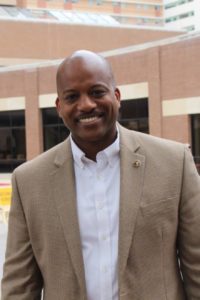
“It’s difficult for us to encourage those that we care for to get vaccinated if we ourselves aren’t willing to do it,” said Chris Sandles, the Medical Center Director and CEO for the South Texas Veterans Health Care System in San Antonio.
Sandles doesn’t yet know how many of his healthcare workers are unvaccinated, but he said he thinks it’s a relatively small number. He added that he’ll continue to do what he’s always done: provide employees the latest CDC guidance, give them vaccine safety information, and make sure they know how to get shots. Like other regional VA health systems, South Texas frequently offers walk-in vaccination drives for veterans, spouses, caregivers, and all VA employees.
“If we have an employee that is not vaccinated and does not have an approved medical or religious exemption, then their removal will be proposed,” Sandles said. “It’s difficult for us to encourage those that we care for to get vaccinated if we ourselves aren’t willing to do it.”
Healthcare worker unions have been fairly quiet about the mandate. National Nurses United said it supports mandatory vaccines as part of a bigger public health program. The American Federation of Government Employees — which represents the largest share of VA workers — encourages vaccination but has suggested that it shouldn’t be a condition of employment.
For some veterans, questions have arisen about what the mandate means for their care.
Air Force veteran Charles Moore, a San Antonio VA patient, said he’s been vaccinated but doesn’t think it should be required of VA’s healthcare staff. He expressed concern that requiring vaccines would force healthcare workers to quit — and create bottlenecks in the system.
“I hope that the VA made the right decision about this matter, because they do have some great employees, and I would hate to lose any of them,” he said.
Frontline VA healthcare workers have until mid September to comply with the mandate. If they have a qualifying exemption, they may be moved to areas of the medical center that aren’t high risk.
This story was produced by the American Homefront Project, a public media collaboration that reports on American military life and veterans. Funding comes from the Corporation for Public Broadcasting.
Copyright 2021 North Carolina Public Radio – WUNC.


